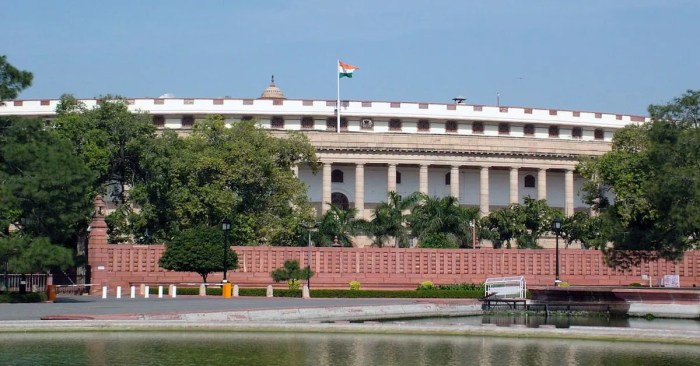Is India done with crypto? The question has been swirling in the air since the government introduced its controversial 2022 crypto tax regulations. While India’s crypto landscape has been a roller coaster of enthusiasm and regulation, the future of this digital asset class in the country remains uncertain. This article dives into the current state of affairs, exploring public sentiment, government initiatives, and the potential trajectory of crypto in India.
India’s crypto journey began with a surge of interest, fueled by the potential of decentralized finance and blockchain technology. However, the government’s cautious approach, marked by a series of regulations and a lack of clear guidelines, has cast a shadow of uncertainty over the industry. The 2022 tax regulations, which imposed a 30% tax on crypto profits and a 1% TDS on transactions, were met with widespread criticism from the crypto community, raising concerns about the government’s stance on cryptocurrencies.
India’s Crypto Landscape
India’s relationship with cryptocurrencies is a fascinating story of both adoption and regulation. While the country has witnessed a surge in crypto adoption, the government has taken a cautious approach, implementing regulations that have impacted the market.
Crypto Adoption in India
Cryptocurrency adoption in India has been steadily growing, fueled by factors such as:
* Growing awareness and interest: Increasing awareness about cryptocurrencies and their potential benefits has driven more people to explore the space.
* Technological advancements: The emergence of user-friendly platforms and wallets has made it easier for people to buy, sell, and trade cryptocurrencies.
* Economic factors: The Indian rupee’s volatility and inflation have led some individuals to seek alternative investments, including cryptocurrencies.
* Young population: India’s young and tech-savvy population is more open to embracing new technologies like cryptocurrencies.
Regulatory Landscape
The Indian government has taken a measured approach to regulating cryptocurrencies. Here’s a breakdown of key developments:
* 2018: The Reserve Bank of India (RBI) banned banks from dealing with cryptocurrency businesses. This move significantly impacted the market and led to a decline in trading activity.
* 2020: The Supreme Court of India overturned the RBI’s ban, paving the way for a revival of the crypto market.
* 2022: The government introduced a 30% tax on income from crypto transactions and a 1% TDS (Tax Deducted at Source) on crypto transactions. This move was seen as a step towards bringing cryptocurrencies under the ambit of the formal financial system.
Impact of 2022 Crypto Tax Regulations, Is india done with crypto
The 2022 crypto tax regulations have had a mixed impact on the Indian market:
* Increased compliance burden: The regulations have added to the compliance burden for crypto exchanges and investors, leading to some investors withdrawing from the market.
* Reduced trading volumes: The 1% TDS has discouraged some investors from frequent trading, leading to a decline in trading volumes on crypto exchanges.
* Focus on long-term investments: The 30% tax on income from crypto transactions has encouraged some investors to shift their focus towards long-term investments, holding cryptocurrencies for the long haul.
“The government’s stance on cryptocurrencies is still evolving. While the 2022 regulations have brought clarity, there is still uncertainty regarding the future of crypto in India.” – Expert Opinion
Public Sentiment and Usage: Is India Done With Crypto
India’s relationship with cryptocurrencies is complex, marked by a blend of curiosity, skepticism, and a growing sense of opportunity. While the government has taken a cautious approach, the public’s interest in crypto continues to surge, driven by a desire for financial freedom and a belief in the transformative potential of this technology.
Public Perception
Public perception of cryptocurrencies in India is multifaceted, reflecting a range of views and experiences. A significant portion of the population remains skeptical, viewing cryptocurrencies as a risky and volatile investment. Concerns about scams, regulatory uncertainty, and the lack of widespread adoption contribute to this apprehension. However, a growing segment of the population, particularly among young adults and tech-savvy individuals, embraces cryptocurrencies as a potential avenue for wealth creation and financial independence. This positive sentiment is fueled by the perceived benefits of decentralization, accessibility, and the potential for high returns.
Use Cases and Benefits
Indian users perceive cryptocurrencies as offering a diverse range of use cases and benefits:
- Investment and Speculation: Cryptocurrencies, particularly Bitcoin and Ethereum, are widely seen as potential investment assets, offering the possibility of significant returns. This speculative aspect has attracted many users, particularly those seeking to diversify their portfolios or hedge against inflation.
- Remittances: The high cost and lengthy processing times associated with traditional remittance services have spurred interest in using cryptocurrencies for cross-border payments. Cryptocurrencies like Ripple and Stellar offer faster, cheaper, and more transparent remittance solutions, attracting users seeking to send money to family and friends abroad.
- Decentralized Finance (DeFi): DeFi applications built on blockchain technology have gained traction in India, offering alternative financial services like lending, borrowing, and trading without intermediaries. These applications are particularly appealing to users seeking to access financial services without relying on traditional institutions.
- Payments and Commerce: While still in its nascent stage, the use of cryptocurrencies for everyday payments is gaining momentum in India. Some merchants and businesses are accepting cryptocurrencies, particularly in niche sectors like online gaming and e-commerce, offering users an alternative payment method.
Demographics of Crypto Users
The demographics of crypto users in India reveal a diverse and evolving landscape:
- Young Adults: A significant portion of crypto users in India are young adults between the ages of 18 and 35, who are tech-savvy, open to new technologies, and seeking alternative financial opportunities.
- Urban Centers: Crypto adoption is more prevalent in urban centers like Mumbai, Delhi, and Bangalore, where access to technology and financial literacy is higher.
- Tech Professionals: Individuals working in technology-related fields, such as software development and blockchain engineering, are more likely to be familiar with and use cryptocurrencies.
- Entrepreneurs and Business Owners: Cryptocurrencies have attracted the attention of entrepreneurs and business owners seeking to leverage blockchain technology for innovative solutions and to streamline operations.
Government Initiatives and Policy
India’s relationship with cryptocurrencies has been marked by a mix of caution and exploration. The government has taken a measured approach, seeking to balance potential benefits with concerns around financial stability and investor protection. This has led to a dynamic landscape where regulations are evolving, and the future of crypto in India remains uncertain.
The Government’s Stance on Cryptocurrencies
The Indian government has expressed concerns about the potential risks associated with cryptocurrencies, including volatility, money laundering, and the lack of a robust regulatory framework. In 2018, the Reserve Bank of India (RBI) banned banks from dealing with cryptocurrency exchanges, citing concerns about money laundering and financial instability. However, the Supreme Court of India overturned this ban in 2020, paving the way for a more open approach.
The Ongoing Debate on India’s Crypto Future
The debate on whether India should embrace or restrict cryptocurrencies is ongoing. Some argue that cryptocurrencies can foster financial inclusion, promote innovation, and enhance financial efficiency. Others believe that the lack of regulation and the inherent volatility of cryptocurrencies pose significant risks to investors and the financial system.
Potential Future Plans for Regulating Cryptocurrencies
The Indian government is currently working on a comprehensive framework for regulating cryptocurrencies. The proposed framework is expected to address concerns around money laundering, investor protection, and tax compliance. The government is considering a range of options, including a ban, a regulated framework, or a hybrid approach that combines elements of both.
“The government is committed to creating a conducive environment for innovation while ensuring the safety and security of investors,” said the Finance Minister.
The future of cryptocurrencies in India will depend on the government’s final stance and the implementation of its regulatory framework.
Despite the challenges, India’s crypto future isn’t entirely bleak. The government’s focus on regulating crypto, rather than outright banning it, suggests a potential path towards mainstream adoption. The ongoing debate about crypto’s role in the Indian economy, coupled with the increasing adoption of blockchain technology in various sectors, points to a future where cryptocurrencies could play a significant role. The journey ahead is likely to be complex, with both opportunities and challenges. Whether India fully embraces crypto or takes a more cautious approach, the future of this digital asset class in the country will be shaped by a delicate dance between innovation, regulation, and public sentiment.
India’s crypto journey has been a rollercoaster, with the government taking a cautious approach. While the country grapples with regulations, it seems the drama surrounding Byju’s, where investors unanimously voted to remove the founder , highlights the importance of transparency and accountability in any industry, even in the world of crypto. Whether India’s crypto future will be one of innovation or uncertainty remains to be seen.
 Standi Techno News
Standi Techno News

